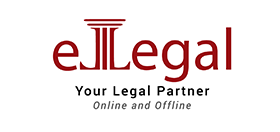

© eLegal, All Rights Reserved | @cruxtechng


Contact us through our WhatsApp chat, web form or our toll free number, stating your full contact information, the service you would like to be provided and a request for a quote from our expert consultants.
Receive and review our quote alongside the details of the legal service to be provided, approve the quote and pay through any of our listed reliable payment system.


Receive a fast and reliable delivery of the legal advice and documents from our expert lawyers.
At eLegal Consultants, we provide faster, convenient and affordable legal services in a click of a button.
Poland has recently updated its property laws, introducing new regulations and requirements for individuals and companies involved in property ownership, development, and management.
Understanding these changes is crucial to ensure compliance and avoid legal pitfalls.
1. Property Ownership and Registration
Under Poland’s recent property laws, individuals must ensure proper registration of property ownership. The Land and Mortgage Register (Księga Wieczysta) is the official record of property rights. Key steps include:
2. Building Permits and Renovations
If you plan to build, renovate, or modify a property, you must obtain the necessary permits:
3. Zoning and Land Use Regulations
Poland’s zoning laws (Miejscowy Plan Zagospodarowania Przestrzennego) dictate how land can be used. Individuals must:
4. Tax Compliance
Property ownership in Poland comes with tax obligations:
5. Environmental Regulations
For properties in environmentally sensitive areas, additional permits may be required:
As our name suggests, we offer you the best comprehensive legal solution online and offline.

© eLegal, All Rights Reserved | @cruxtechng
